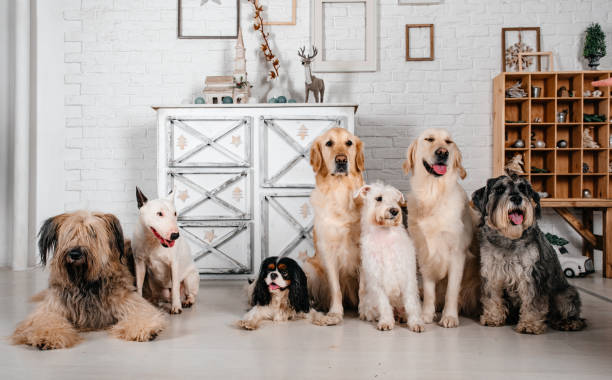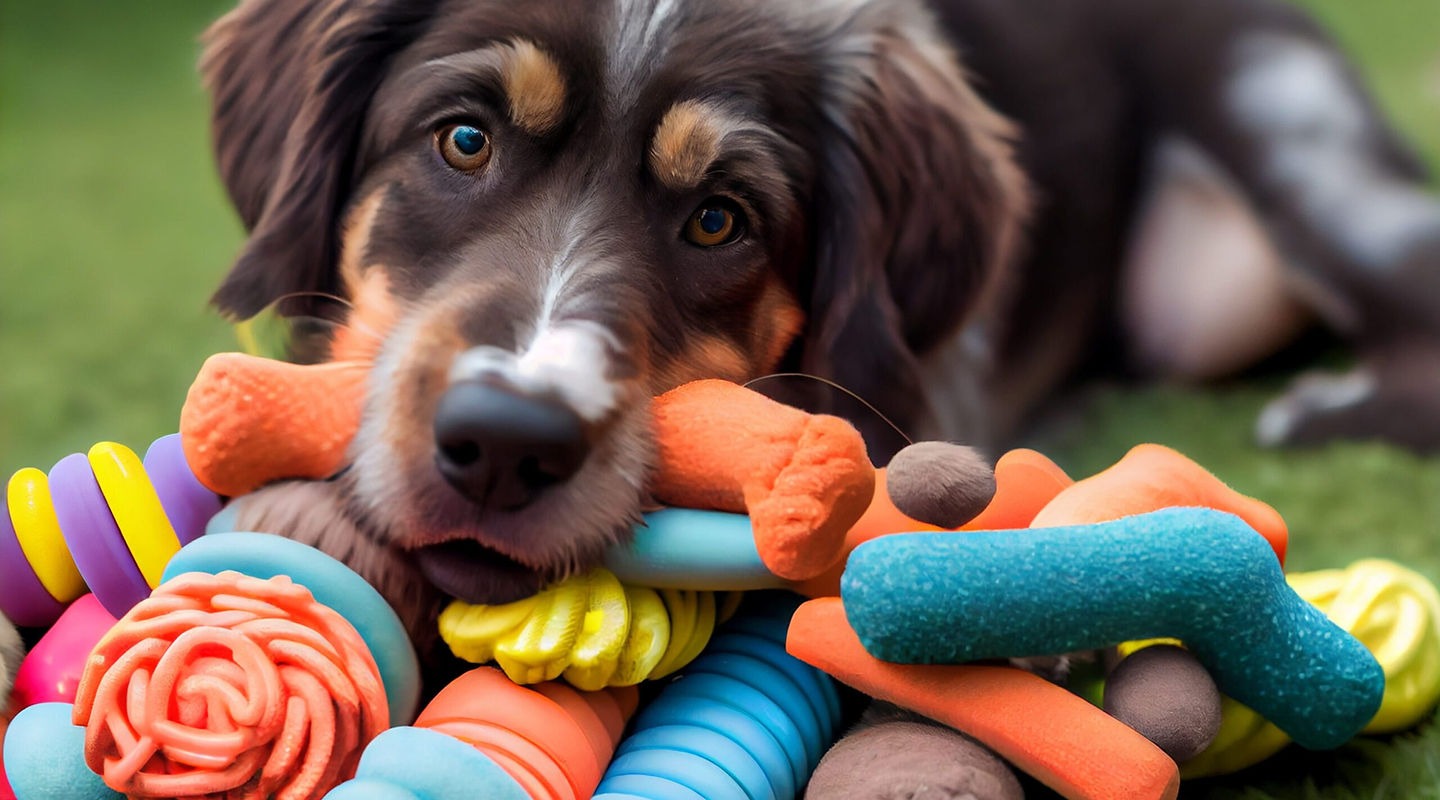
Best Dog Breeds for Apartment Living: Perfect Pups for Every Space
Discover the top dog breeds suited for apartment living of any size, balancing temperament, exercise needs, and adaptability to ensure your furry friend thrives in a cozy urban environment.
🐶 Pet Star
26 min read · 19, Jul 2025

Understanding Apartment Living and Dog Ownership
What Makes a Dog Suitable for Apartment Life?
Living in an apartment presents unique challenges and opportunities for dog owners. Space constraints, noise sensitivity of neighbors, and limited outdoor areas mean choosing the right breed is essential. Dogs that thrive in apartments tend to have certain characteristics:
- Moderate energy levels that can be managed indoors.
- Calm or adaptable temperament.
- Smaller size or compact build.
- Quiet nature to avoid noise complaints.
- Trainability to adapt to confined living spaces.
While size often influences suitability, behavior and exercise needs are equally important.
Why Breed Selection Matters
Selecting a dog breed based on apartment compatibility benefits both owner and pet. The wrong choice may lead to destructive behavior, anxiety, or health issues due to insufficient exercise or stimulation. Responsible owners consider lifestyle, time commitment, and space when choosing a breed.
Key Traits to Look for in Apartment-Friendly Dogs
Energy Level and Exercise Requirements
Dogs with high energy levels require significant exercise and mental stimulation to stay healthy and happy. Apartment dwellers benefit from breeds with moderate to low energy that can adapt to short walks and indoor play.
Size and Space Needs
Smaller dogs generally adapt better to tight spaces, but some medium-sized dogs with calm temperaments also do well.
Temperament and Sociability
Dogs that are friendly, non-aggressive, and less prone to excessive barking suit apartment life best. Social dogs often enjoy visits to dog parks and public spaces.
Trainability
Easy-to-train breeds help manage indoor behaviors and adapt quickly to apartment routines.
Top 15 Dog Breeds Ideal for Apartment Living
1. French Bulldog
French Bulldogs are small, muscular, and low-energy, making them perfect for apartment life. Known for their affectionate and calm demeanor, they require minimal exercise but thrive on companionship.
- Exercise: 20-30 minutes of daily walks.
- Temperament: Quiet, playful, and adaptable.
- Size: 16-28 pounds.
2. Cavalier King Charles Spaniel
This breed is gentle, affectionate, and thrives indoors. They enjoy moderate activity but are happy curling up on the couch.
- Exercise: 30 minutes daily.
- Temperament: Social, loving, and good with children.
- Size: 13-18 pounds.
3. Chihuahua
Chihuahuas are tiny but confident dogs that adapt well to apartment living. They are alert and make excellent companions, though early socialization is important to curb barking.
- Exercise: 20 minutes daily.
- Temperament: Loyal, alert, and sometimes feisty.
- Size: 4-6 pounds.
4. Boston Terrier
Boston Terriers are lively yet manageable dogs, with a friendly disposition that suits urban environments.
- Exercise: 30 minutes daily.
- Temperament: Outgoing, intelligent, and easygoing.
- Size: 10-25 pounds.
5. Pug
Pugs are known for their charming personalities and adaptability. They prefer short bursts of play and plenty of naps.
- Exercise: 20-30 minutes.
- Temperament: Sociable, affectionate, and generally quiet.
- Size: 14-18 pounds.
6. Dachshund
Despite their long bodies, Dachshunds adjust well to smaller living spaces. They are spirited but enjoy relaxed indoor time.
- Exercise: 30 minutes.
- Temperament: Curious, loyal, and alert.
- Size: 11-32 pounds.
7. Maltese
Maltese dogs are small, gentle, and prefer calm indoor environments. Their grooming needs are higher, but their quiet nature is a plus.
- Exercise: 20 minutes.
- Temperament: Affectionate, gentle, and intelligent.
- Size: 4-7 pounds.
8. Shih Tzu
Shih Tzus are historically bred as indoor companions, making them natural apartment dogs. They are friendly and enjoy being pampered.
- Exercise: 20-30 minutes.
- Temperament: Calm, social, and affectionate.
- Size: 9-16 pounds.
9. Havanese
The Havanese is a playful, social dog that adapts well to small spaces with enough mental stimulation.
- Exercise: 30 minutes.
- Temperament: Friendly, intelligent, and adaptable.
- Size: 7-13 pounds.
10. English Bulldog
Bulldogs are sturdy, low-energy dogs well-suited to apartment living. Their calm and affectionate nature makes them excellent companions.
- Exercise: 20 minutes light walks.
- Temperament: Docile, loyal, and quiet.
- Size: 40-50 pounds.
11. Pomeranian
Pomeranians are small and lively, requiring mental stimulation to prevent boredom.
- Exercise: 20 minutes.
- Temperament: Playful, alert, and intelligent.
- Size: 3-7 pounds.
12. Toy Poodle
Toy Poodles are smart, hypoallergenic dogs that thrive on interaction and moderate exercise.
- Exercise: 30 minutes.
- Temperament: Intelligent, trainable, and affectionate.
- Size: 4-6 pounds.
13. Bichon Frise
Bichons are cheerful and friendly, with moderate energy and minimal shedding.
- Exercise: 30 minutes.
- Temperament: Playful, gentle, and social.
- Size: 10-20 pounds.
14. Japanese Chin
A rare but excellent apartment dog, the Japanese Chin is quiet and loves companionship.
- Exercise: 20 minutes.
- Temperament: Elegant, calm, and affectionate.
- Size: 7-11 pounds.
15. Miniature Schnauzer
Mini Schnauzers are energetic but adaptable, requiring regular exercise but happy in apartments when mentally stimulated.
- Exercise: 30-45 minutes.
- Temperament: Intelligent, obedient, and friendly.
- Size: 11-20 pounds.
Exercise and Mental Stimulation: Managing Dog Energy in Apartments
Balancing Physical Activity
Even small dogs need regular exercise to maintain health and avoid destructive behavior. Daily walks, stair climbing, or interactive play inside can suffice.
Importance of Mental Engagement
Puzzle toys, obedience training, and socialization help keep dogs mentally sharp and content in confined spaces.
Noise Considerations in Apartment Settings
Managing Barking Tendencies
Some breeds are naturally vocal, which can lead to neighbor complaints. Training and environmental enrichment are essential for managing barking.
Soundproofing Tips
Using rugs, curtains, and white noise machines can reduce noise transmission and create a calm environment.
Grooming and Maintenance for Apartment Dogs
Space for Grooming
Regular grooming prevents shedding and allergens in tight spaces.
Breed-Specific Needs
Breeds like Shih Tzus or Maltese require frequent brushing, while others like French Bulldogs need skin care.
The Role of Training and Socialization
Crate Training and Boundaries
Crate training helps dogs feel safe and controls their movement indoors.
Socialization for Calm Behavior
Exposing dogs to varied environments and people reduces anxiety and promotes adaptability.
Expert Insights: What Vets and Trainers Recommend
According to Dr. Laura Reeves, a veterinarian specializing in urban pets, “Apartment living demands careful breed selection and commitment to daily exercise and mental engagement. Smaller dogs aren’t always lower energy, so owners must assess individual needs.”
Trainer Mike Delaney adds, “Consistency in training is vital. Even the calmest breeds need boundaries to thrive in limited spaces.”
Apartment Living with Larger Breeds: Possible but Challenging
While large breeds are generally not ideal for apartments, some exceptions exist. Breeds like Greyhounds, known as “45-mile-per-hour couch potatoes,” require short walks and lots of rest.
Large Breeds with Low Energy
- Greyhound
- Great Dane
- Bullmastiff
These breeds can adapt to apartments if owners provide sufficient outdoor time.
Adopting vs. Buying: Finding Your Apartment Dog
Benefits of Adoption
Shelters often have small to medium breeds perfect for apartment life. Adopting helps give a home to dogs in need.
Working with Reputable Breeders
For specific breeds, research breeders with good reputations and health guarantees.
Preparing Your Apartment for a Dog
Creating a Safe Space
Designate a cozy area with a bed, toys, and water.
Dog-Proofing
Remove hazards such as toxic plants, electrical cords, and small objects.
Managing Dog Behavior to Maintain Harmony
Establishing a Routine
Consistent feeding, walking, and playtimes reduce stress.
Dealing with Separation Anxiety
Training and interactive toys help dogs cope when left alone.
Conclusion
Choosing the right dog breed for apartment living is essential to ensure both you and your furry companion enjoy a harmonious, fulfilling life. Apartment environments come with unique challenges such as limited space, noise concerns, and restricted outdoor access, but with thoughtful breed selection and proper care, these challenges can be effectively managed. Small to medium-sized breeds like French Bulldogs, Cavalier King Charles Spaniels, and Miniature Schnauzers prove that adaptability and temperament often outweigh size when it comes to apartment suitability.
A dog’s exercise needs, energy levels, trainability, and social behavior are key factors in determining their compatibility with apartment life. Furthermore, mental stimulation and establishing a consistent routine play crucial roles in keeping apartment dogs happy and healthy. Incorporating training, enrichment toys, and regular socialization can prevent behavioral issues such as separation anxiety and excessive barking, which are common concerns in confined spaces.
Moreover, understanding your building’s pet policies, investing in pet-proofing your space, and fostering positive relationships with neighbors create a supportive environment that benefits everyone. Advances in pet technology and the rise of pet-friendly urban living spaces further enhance the apartment dog ownership experience, making it more manageable and enjoyable.
Ultimately, responsible ownership and a commitment to meeting your dog’s physical and emotional needs will lead to a rewarding companionship, no matter the size of your apartment. By selecting the right breed and prioritizing their well-being, you can create a loving home where your dog thrives and becomes your perfect urban companion.
Frequently Asked Questions (Q&A)
Q1: What dog breeds are best suited for apartment living?
A1: Breeds like French Bulldogs, Cavalier King Charles Spaniels, Pugs, and Miniature Schnauzers are ideal due to their moderate energy levels, small size, and adaptability.
Q2: Can larger dogs live happily in apartments?
A2: Yes, some larger breeds like Greyhounds and Great Danes with low energy levels can adapt if given sufficient exercise and mental stimulation.
Q3: How important is exercise for apartment dogs?
A3: Exercise is crucial regardless of breed size. Regular walks and playtime prevent boredom, obesity, and behavioral problems.
Q4: How can I manage barking in an apartment dog?
A4: Training commands like “quiet,” environmental enrichment, and soundproofing help reduce excessive barking.
Q5: Are there specific health concerns for apartment dogs?
A5: Yes, obesity, respiratory issues in brachycephalic breeds, and stress-related problems require attention and regular vet check-ups.
Q6: How do I prevent separation anxiety in my apartment dog?
A6: Gradual desensitization, interactive toys, and maintaining a routine can alleviate separation anxiety.
Q7: What grooming considerations should apartment dog owners keep in mind?
A7: Regular grooming reduces shedding and allergens; breeds like Shih Tzus require more frequent care.
Q8: Can mental stimulation replace physical exercise?
A8: Mental stimulation complements physical exercise but cannot fully replace it; both are needed for overall well-being.
Q9: How do pet policies affect dog ownership in apartments?
A9: Pet policies can restrict breed size, number, or types allowed; understanding these helps avoid lease violations.
Q10: What are some tips for socializing an apartment dog?
A10: Frequent exposure to people, other dogs, and varied environments builds confidence and reduces anxiety.
Similar Articles
Find more relatable content in similar Articles

Vegan Pet Toys and Accessories That Last Longer...
As pet owners grow more eco-co.. Read More

How Pets Strengthen Family Bonds...
Pets are more than just compan.. Read More

How Climate Change Affects Wild and Domestic Animals...
Climate change is dramatically.. Read More

Sustainable Pet Products: What to Look for in 2025...
As sustainability becomes a ce.. Read More
Explore Other Categories
© 2024 Copyrights by rPets. All Rights Reserved.